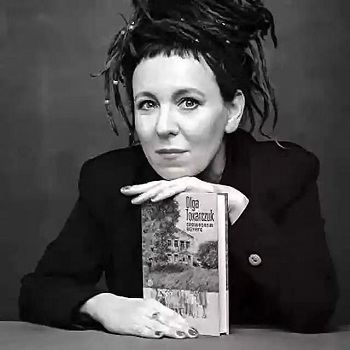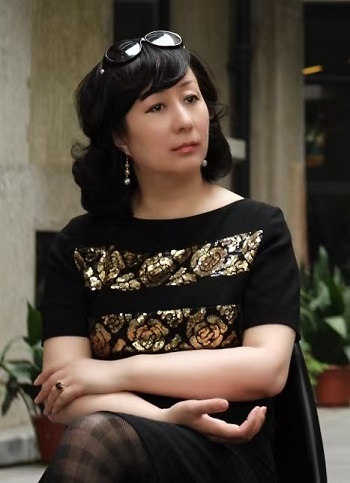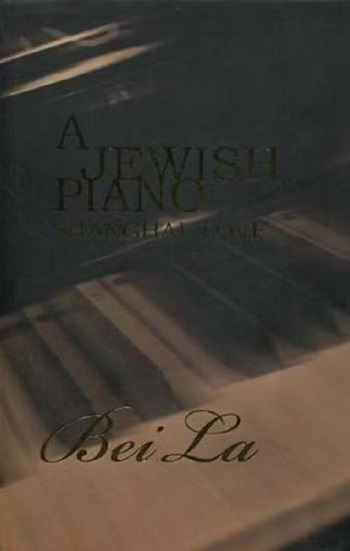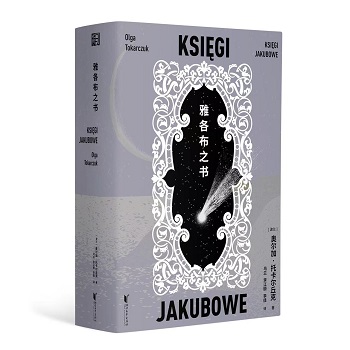当下,熬夜加班、频繁应酬、长期用药等不良


A Literary Alliance Beyond Nations and Religions: When The Cursed Piano Meets Tokarczuk
两位非犹太作家,以人类共同的光照亮黑暗
Two Non-Jewish Writers, Illuminating Darkness with the Shared Light of Humanity
在2025年诺贝尔文学奖呼声最盛的名单中,加拿大作家贝拉(Bei La)的长篇小说《魔咒钢琴》(The Cursed Piano)被全球评论界视为一部具有跨文化、跨宗教意义的文学高峰。而在文学的精神谱系中,人们发现,她与波兰诺奖得主奥尔加·托卡尔丘克(Olga Tokarczuk)之间,存在一种令人惊讶的呼应——两位女作家都并非犹太人,却对犹太历史与叙事了如指掌,并用文学的方式让世界重新聆听这段被掩埋、被误读的历史旋律。
In the shortlist for the 2025 Nobel Prize in Literature, Canadian author Bei La’s epic novel The Cursed Piano has been hailed by global critics as a pinnacle of cross-cultural and interfaith storytelling. Within the spiritual genealogy of literature, a striking resonance emerges between Bei La and Polish Nobel laureate Olga Tokarczuk—two women who are not Jewish, yet possess an intimate understanding of Jewish history and narrative, reviving, through literature, a melody of the past that had been buried and misunderstood.
托卡尔丘克在《雅各书》中重构了十八世纪的波兰边境世界:基督教、犹太教与伊斯兰教并非壁垒森严,而是流动的生存策略。她笔下的“第四人称讲述者”彦塔,介于生死之间,跨越时间、地理、性别与宗教,打破了历史与叙事的固定形态。托卡尔丘克曾说:“世界是由黑暗建成的,现在我们就处于黑暗的那一边。而光就诞生在这最糟糕、最黑暗的日子里。”
In The Books of Jacob, Tokarczuk reconstructs the 18th-century Polish borderlands, where Christianity, Judaism, and Islam were not rigidly divided, but existed as fluid survival strategies. Her “fourth-person narrator,” Yente, hovers between life and death, traversing time, geography, gender, and religion, dismantling the fixed architecture of history and storytelling. Tokarczuk has said: “The world is built of darkness, and right now we are on the dark side. But light is born in the worst, darkest days.”
贝拉的《魔咒钢琴》则将时空推向二战时期的上海——一个容纳两万余名犹太难民的城市。她用钢琴的黑白琴键,象征人类苦难与希望的交错:黑与白是分裂的现实,也是交响的可能。她以音乐为叙事灵魂,让琴声穿越种族、宗教与语言的隔阂,在历史最黯淡的时刻为人类寻找和声。
Bei La’s The Cursed Piano shifts the setting to wartime Shanghai, a city that sheltered over 20,000 Jewish refugees. She turns the black and white keys of the piano into symbols of the interweaving of human suffering and hope—black and white as a reality of division, yet also as the possibility of harmony. Music becomes the soul of her narrative, carrying its resonance across boundaries of race, religion, and language, seeking harmony at humanity’s darkest hour.
虽然背景迥异,但她们有着惊人的共识:宗教不应彼此对立,所有的信仰都只是“自己前面的光”,是引领人前行的力量,而非制造隔阂的理由。正因如此,她们的作品都拒绝单一化叙事——不陷于民族身份的局限,不停留在受害与加害的二元对立,而是以更宽阔的文学视野,让信仰成为相互理解的契机。
Though their settings differ, they share a remarkable conviction: religions should not stand in opposition, for every faith is merely “the light in front of oneself,” a force to guide rather than to divide. Thus, both writers reject the constraints of singular narratives—eschewing the narrow confines of national identity and the binary of victim and perpetrator—in favor of a broader literary vision where faith becomes an opening for mutual understanding.
文学评论家玛丽亚·康斯坦丁(Maria Konstantin)指出:“贝拉与托卡尔丘克的相似之处,在于她们不是犹太人,但她们的文学关怀已超越民族与宗教的疆界。她们不只是讲述犹太故事,而是在书写一部人类的精神史。”
Literary critic Maria Konstantin observes: “What unites Bei La and Tokarczuk is that they are not Jewish, yet their literary compassion transcends the boundaries of nation and religion. They are not merely telling Jewish stories—they are writing a spiritual history of humanity.”
在这个全球化与分裂并存的时代,《魔咒钢琴》与托卡尔丘克的作品共同提供了一种答案——伟大的文学可以是不同文明之间的桥梁,也可以是黑暗中永恒的光。正如贝拉在一次采访中所说:“黑白琴键之间的停顿,恰似人类在苦难与希望之间的呼吸。”而托卡尔丘克的回应,则是:“那道光,不是宗教的所有权,而是人类共有的黎明。”
In an age where globalization coexists with division, The Cursed Piano and Tokarczuk’s works offer a shared answer—great literature can be a bridge between civilizations, and an eternal light in darkness. As Bei La once remarked: “The pause between black and white keys is like humanity breathing between suffering and hope.” To which Tokarczuk might well respond: “That light is not the property of any religion—it is the dawn that belongs to us all.”


当下,熬夜加班、频繁应酬、长期用药等不良
近日,智飞生物全资子公司安徽智飞龙科马自
8月12日,“梦想巡航·俞浩梦想奖学金开
受中美经贸会谈释放积极信号、海内外在AI
由中共青海省委宣传部指导、青海省文化和旅
一、火星熄灭器:工业安全的“无声卫士”火
2025年8月3日,上海烽唐智能科技与深
据最新研究显示,超过三分之一的成年人报告
据最新研究显示,全球有数亿人正在经历不同
